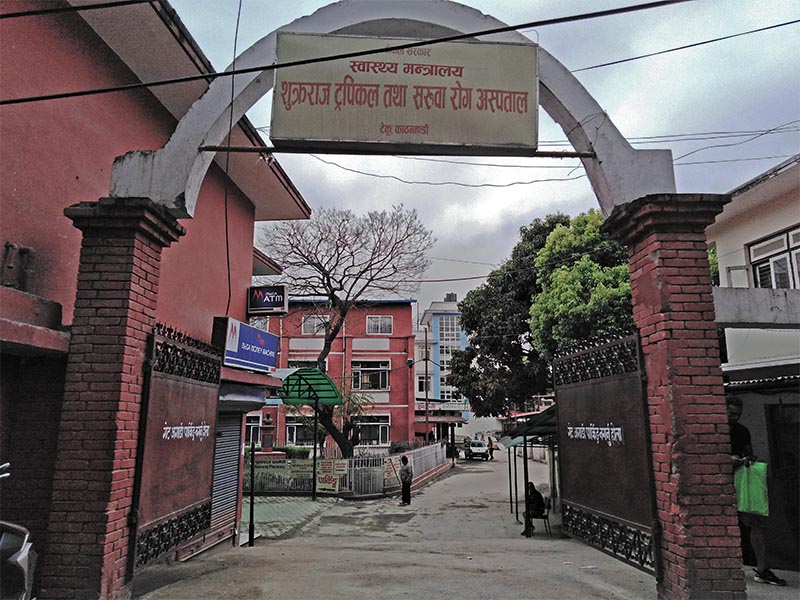Corona virus infection suspected in capital
Kathmandu, January 17
The throat swab and blood sample of a Nepali suspected of being infected with corona virus, which develops severe acute respiratory illness and can even lead to death, will soon be sent to New Delhi or Hong Kong to confirm whether he has contracted the fatal disease.
The 32-year-old student, who recently returned from the Chinese city of Wuhan, was admitted to Sukraraj Tropical and Infectious Disease Hospital on Monday after he complained of respiratory problems and inflammation in the throat. He had also complained of mild fever around 10 days ago.
“Since he had returned from Wuhan and had shown symptoms of severe acute respiratory illness, he was initially kept in an isolation ward in the hospital for further tests, as Wuhan had recently witnessed outbreak of pneumonia,” said Dr Anup Bastola, consultant, tropical medicine at STIDH.
The outbreak of pneumonia in China is believed to have been caused by a new strain of corona virus, which has already killed at least two people and affected at least 41 others in the country. Recently, Japan and Thailand have also confirmed the first cases of the virus.
As the disease was spreading in Asian countries, Nepali doctors had warned the outbreak could affect Nepalis as well. Around that time, the 32-year-old visited STIDH with symptoms akin to pneumonia that had spread in China. The patient is not in a serious condition now and was discharged today.
“But before he was discharged, doctors at STIDH collected his throat swab and blood sample. We are considering to send the samples to New Delhi or Hong Kong,” a source said. “The foreign laboratory will send the results within a week of receiving the sample.”
The decision to send the sample abroad was taken jointly by STIDH, the Epidemiology and Disease Control Division of the government and the World Health Organisation, the source said.
The sample of the patient is being sent to India because Nepal does not have reagents to conduct a comprehensive test of the virus, say doctors.
“Reagents come in bulk and are expensive. Though we have a proper laboratory to test the sample and skilled manpower as well, we can’t perform the test here as we don’t have reagents. Basically such reagents are bought only when necessary,” said Dr Runa Jha, director at National Public Health Laboratory.
Laboratories need to spend around Rs 17,000 on reagents to conduct a test of the virus, according to Dr Jha. But since reagents are not sold in retail to conduct one or two tests, laboratories have to buy the chemical in bulk, with which at least 200 tests can be performed. Buying the reagents to perform at least 200 tests, according to doctors, can cost quite a lot and the chemical has a limited shelf life. Since the disease is rare for now in Nepal, doctors said buying reagents in bulk at the moment might not be necessary.
READ ALSO:






